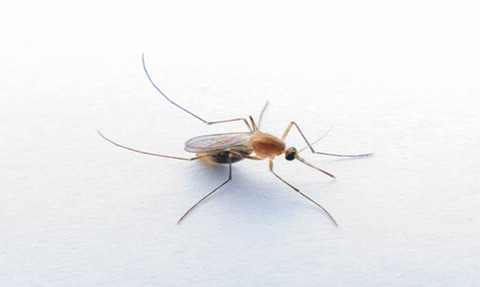Bacteria used to block dengue and Zika
8 Mar 2018

Scientists at the University of Glasgow have found a bacterial strain which blocks dengue and Zika virus transmission from mosquitoes.
The team shows that a novel strain of the inherited bacteria Wolbachia strongly blocks transmission of dengue and Zika virus among infected mosquitoes, offering a potential alternative to strains already being tested as virus control tools.
Scientists from the University of Glasgow’s MRC Centre for Virus Research (CVR) have carried out the research in the mosquito species Aedes aegypti, which spreads a number of dangerous human viruses, including dengue, Zika, and Chikungunya.
Leader of the research, Professor Steven Sinkins, said: “The Wolbachia transmission blocking strategy shows great promise for the control of mosquito-borne viruses, and is now starting to be deployed on a large scale in a number of tropical countries. Our results with the wAu strain showed by far the most effective transmission blocking for all the viruses we tested, and it provides an exciting new option to explore for disease control programmes.”
Previous research has shown that transmission of these viruses among mosquitoes is inhibited if the flies are deliberately infected with one strain of Wolbachia bacteria, and several countries are testing whether infecting local mosquito populations with Wolbachia could lower rates of viral disease in humans.
Now University of Glasgow CVR scientists have shown that a novel strain ‘wAu’ is even more effective for virus transmission blocking than strains currently being used, particularly in hot, tropical climates where there is high prevalence of these diseases.
After feeding on blood infected with dengue or Zika virus, mosquitoes infected with wAu had lower levels of viral RNA in their body tissue than did mosquitoes infected with the other strains. wAu also showed very high rates of inheritance, including under high-temperature conditions.
Dr Jonathan Pearce, Head of Infections and Immunity at the MRC, said: “This is incredibly relevant research with implications that can be applied to pressing issues on the ground in many parts of the world. These findings may be key to uncovering a new tool in the fight against the spread of mosquito-borne diseases. Meanwhile, the international network is pulling together experts from a wide range of scientific disciplines to exchange knowledge and brainstorm promising new ways to target vector-borne diseases.”
The study is published in PLOS Pathogens.
- This story originally appeared on our sister site Laboratory News. For more breaking stories see www.labnews.co.uk

